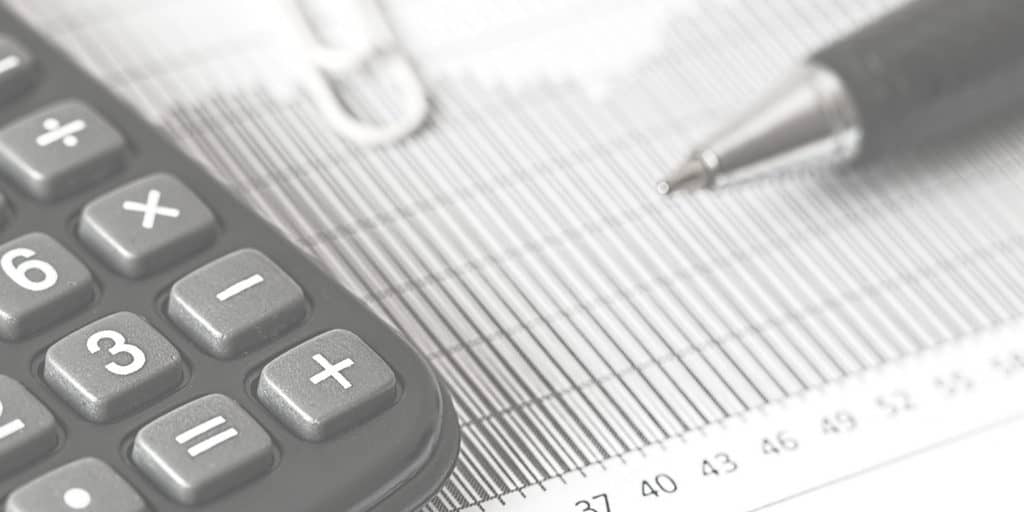Is Having Multiple Bank Accounts a Good Idea?
(This page may contain affiliate links and we may earn fees from qualifying purchases at no additional cost to you. See our Disclosure for more info.)
When it comes to bank accounts, is too much of a good thing too much?
Should you have more than one or two bank accounts? And should they be at different banks?
The more bank accounts you have, the more time it takes to track and manage them. But there are advantages to having multiple accounts. Read on to decide if having more than one bank account can be useful for you.
How many bank accounts should I have?
It’s an excellent idea for most people to have at least two bank accounts: a checking and savings account.
And when you link your savings account to your checking account, transfers are a piece of cake.

To keep things simple, you might want checking and savings accounts at the same bank or credit union.
Linked accounts with one routing number make managing your money easier. And some banks offer overdraft protection and cover a checking shortage with funds from your connected savings account.
Yet, there are some reasons you might want multiple accounts (perhaps at different institutions) or even one or more online savings accounts.
Below are a few of those reasons:
- You want a checking or savings account separate from the joint account with your partner.
- You want quick easy access to some money while having a separate bucket of money requiring more steps to access to help save for a goal or curb impulse spending.
- You want to take advantage of the perks such as credit cards or special interest rates offered by different banks.
- You want the benefits of online banking in addition to a local community branch.
- You’re self-employed and need a business account separate from your personal finances.
The Pros and Cons of Owning More Financial Accounts
Let’s look at the pros and cons of having multiple or different types of bank accounts, so you can decide if it’s right for you.
Pros: Why have a number of bank accounts
To track different savings goals. You might want to use additional bank accounts for targeted savings goals.
Keeping each savings goal separate makes it easier to manage and stay motivated.
For example, if you're saving for a house down payment and vacation, you can have savings accounts or a for each.
And you might want to have a separate account for your emergency fund savings too.
To protect high balances. The Federal Deposit Insurance Corporation (FDIC) insures up to $250,000 per person, per account.
If you have a large amount of cash, you might use multiple financial products such as a certificate of deposit or money market accounts, each with balances under $250,000.
Then all your money gets protected if your bank experiences hardship or closes.
Patriot Bank High-yield Money Market Deposit Account (MMDA)
To access money in case of a problem. You might not want all your eggs in one basket. If you can’t access one bank account for some reason, having accounts at other banks can be a backup.
It’s reassurance that you have access to cash if there’s a problem at one of your financial institutions.
To get bank perks. Each bank or credit union offers different interest rates, fee structures, credit cards, and perks. You might open an account at each bank to take advantage of the perks each has to offer.
For example, an online bank might offer a higher interest rate on a CD, while a traditional bank might offer a low rate on a loan when you have an associated checking account with an automatic payment set up, and a credit union offers free ATM withdrawals.
To take advantage of bank bonuses. Some banks offer promotional incentives for new customers. Many bonuses are a deposit into your new account after you've met the bank's requirements.
Each bank has different rules to qualify for a reward. For example, some require direct deposits of a specific dollar amount. And others have a set number of debit card transactions.
Cons: Why have fewer accounts
Managing multiple accounts takes time. You have to track account numbers, fees, interest rates, and debit cards for each account.
No matter how organized you are, when you have several bank accounts, it takes time to keep track of them. It’s also wise to keep an eye on each one to ensure there are no unauthorized transactions.
It’s challenging to maintain minimum balances. Some bank accounts have minimum balance requirements. And many will charge fees if your account falls below that balance.
It's not always easy to sustain multiple minimum balances.
You could pay more fees. Even accounts that don't have a monthly maintenance fee at first can change the rules. If you don't stay up-to-date with costs and rates, or if you fail to maintain minimum balances, you could lose money.
Some banks pull your credit when you open an account. Find out if the bank pulls credit before opening an account. If so, ask whether it will be a soft or hard pull.
A soft pull won't affect your credit. But a hard pull gets listed on your credit report and can impact your credit score.
You can get flagged as a risk. Some banks review your banking history when you apply for a new account.
If they determine you have too many bank accounts, they might flag you as high risk. When this happens, it can affect your interest rates and ability to get credit.
Managing Multiple Accounts
If you think having multiple bank accounts is right for you, it’s wise to have a system for managing your accounts.
You need to know what you have, how much, and where. Keep up-to-date on the fee structures, restrictions, and requirements for each bank account.
Do what works for you to stay organized! Here are some ideas for managing multiple bank accounts:
- Use a spreadsheet. Track each bank account's specifics. Note the interest rates, minimum balances, fees, and transaction limits.
- Use a finance app. Finance apps like Empower and Tiller help you see all your accounts and balances in one place.
- Automate everything. This way, you don’t have to rely on your memory to make transfers, deposits, and withdrawals.
- Know the timings. Transferring money between accounts at the same bank can be typically done without delay but transfers between financial institutions may take one to several days. Be sure you understand those timings for when you want or need to move money between accounts.

Should you have multiple bank accounts?
The short answer is yes. Most people do well with a personal checking and a separate savings account. You might also choose to have a bank account separate from a joint account with your partner.
An online checking account for flexibility and a online high-yield savings account for emergency savings or for stashing extra money away for a specific goal, can be beneficial.
And, if you’re self-employed, it’s smart and probably necessary to have a business checking account to keep your personal and business expenses separate.
Beyond that, for some, more isn’t better. It comes down to a matter of preference – and how organized you are.
Still, no matter whether you have two accounts or ten, you need to track them all. Fortunately, there are plenty of apps and budgeting software to help you with that.
Having multiple bank accounts, whether they be at a primary bank or spread across a few, might further your financial goals and be just what you need to manage your sinking funds.
It may also help you feel you're keeping your money safe and readily available in a variety of circumstances.
Having multiple bank accounts whether they be at a primary bank or spread across a few, might further your financial goals and be just what you need to manage your everyday expenses to your sinking funds.
It may also help you feel you're keeping your money safe and readily available in a variety of circumstances.
Just make sure you're not missing out on improved earnings or lower fees with fewer ones.

Article written by Amanda, a team member of Women Who Money and the founder and blogger behind Why We Money where she enjoys writing about happiness, values, and personal finances.
